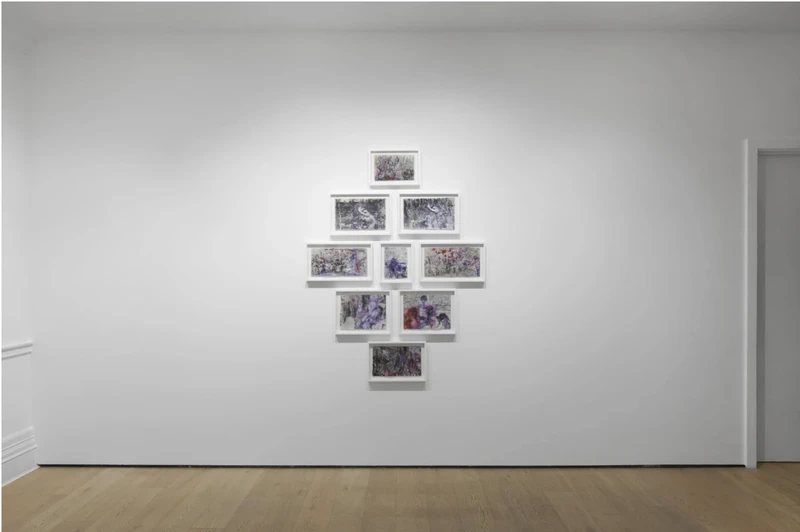Bracha L. Ettinger


b. 1948, Israel
Bracha is prominent international visual artist, feminist theorist, psychoanalyst, philosopher and creator of 'matrixial theory.' Born Bracha L. Ettinger in 1948, Tel Aviv, where she currently lives and works, her paintings revolve around Eros and Thanatos, mythological female figures who were mortified (Eurydice, Medusa, Ophelia and Persephone), as well as historical, transgenerational and personal traumas of women in times of war.
Bracha's images engage with birth, the naked female body and the killing of women and mothers during the Holocaust (based on her family's destiny in the Ponary Forest and in the Stutthof Concentration Camp for Women during the Second World War). Her abstraction gives form to contemplation of the unconscious and innovates a non-perspectival depth-space in relation to transparency and light with the practice of witnessing between aesthetics and ethics.
In Bracha's recent series (Eurydice—Pietà, Eros—Pietà, Medusa) the images encompass Ettinger's research on wounds and healing, compassion and light, human vulnerability, anxiety, wonder and awe, and the relations between the feminine spirit in mythology (Isis) and in the Cosmos in relation to the psychic future time. For the last five years the artist has worked on a series of oil-paintings titled Kaddish - Pietà that revolve around fire and water, mother and child, female body and seashells, in relation to the irruption of her own shell-shock and memory of wounds in war time in 1967 when she led a major rescue operation of more than 150 wounded people from a shipwreck.
Bracha L. Ettinger's work has appeared in prominent exhibitions, biennales and events around the world, including a solo exhibition at Castello di Rivoli, Turin (2021); 'Espressioni: the Proposition' at Castello di Rivoli, Turin (2020-2021); 'Psychic Wounds,' The Warehouse, Dallas (2020); Tàpies Foundation, Barcelona (2010); Freud Museum, London (2009); Palais des Beaux-Arts, Brussels (2000); Israel Museum, Jerusalem (1995); MoMA, Oxford (1993) and more. Her work was shown in solo presentations at the Kochi-Muziris Biennale in 2018 and the Istanbul Biennial in 2015.